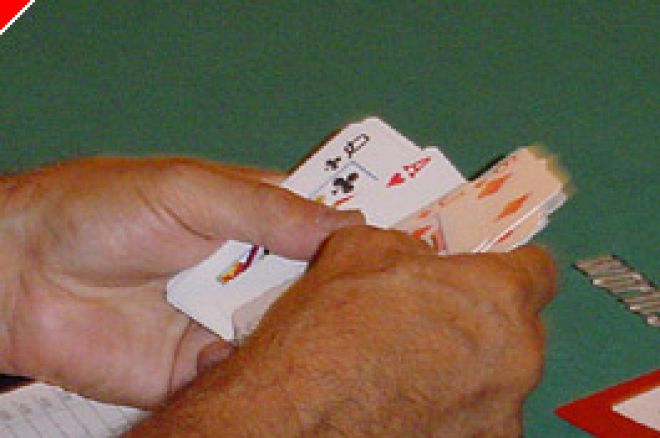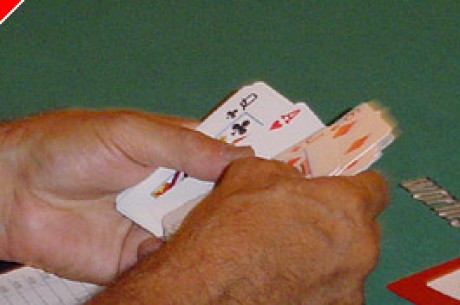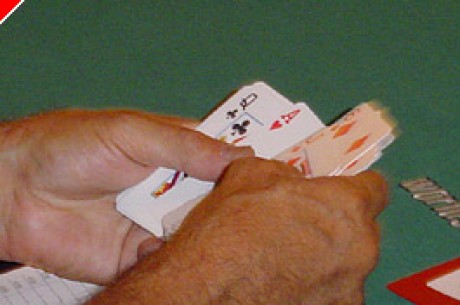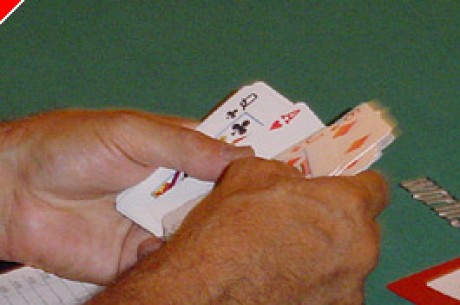Stud Poker Strategy - Playing in a New Game, Part Four

Experienced poker players know the importance of 'tells' - those actions that tend to give away the true strength of their opponents' hands. In a casino, the best kind of tell is usually the broadest one, based on conscious behavior more than unconscious actions. For example, rather than staring down opponents to find some little quirk or twitch that reveals that they really or don't really have the goods, it generally makes much more sense to put them into general categories of "loose", "tight", " aggressive", or "passive".
To some degree this is also true at home games. When you are new to a game you first want to generally divide your opponents into broad categories. But I would use a different set than my casino or poker room ones.
In home games, the first thing I want to figure out is who are the really bad, clueless players. These guys tend to be weeded out fairly quickly in a casino game. Sure, you find them from time to time - more in the low limit hold 'em games I've found. But in home games they abound. This is true for many reasons, but primarily because a home game, unlike a casino or poker room game is often a social event more than a serious competition. Bad players often view their losses as the cost of a night out. So they stick around longer than they would if they were going to a casino.
Identify those players first. They tend to call too often, play substandard hands all the way to conclusion, make obvious and childish mistakes like misreading their hands, and cannot be bluffed.
You can use your other standard categories for everyone else.
There's one additional step that you can take in a home game that you generally don't bother with in a casino or poker club. You DO want to watch for those rare "giveaway" tells that you see in the movies. Since the universe of players is very limited in a home game, chances are that you'll be playing against the same people many, many times. You will be able to study them and learn their mannerisms. Take advantage of this.
There's a method of this that I'll share with you. Pick out one person at a time. And keep a notebook at home of the players. Write down your observations.
When I say pick one person at a time I don't mean that you should ignore clues from other players. Rather, I'm just urging you to be especially attentive to one player. Pay attention especially when he's in a big hand or when he has a major decision. Is he transparent? Does he look nervous and confused when he clearly is unsure? Or does he act? Does he pretend to be strong when he is weak? Most players have a little bit of deception in them, but it's generally fairly obvious. Some players are completely straightforward. They never bluff or dissemble. IF they say they're strong; they are. Keep track of who those players are and exploit their directness.
Over the course of a few sessions you should be able to pick up some clues about how the players play. Make sure to resist the urge to show everyone how smart you are by sharing these observations. Don't tell them that you have a tell on them. In fact, if you've up against a particularly strong and observant opponent, and you notice a significant tell on him that let's you know that he's bluffing or especially strong, don't feel that you have to act on it immediately. In other words, if responding powerfully to his action will demonstrate that you can see through him, you might want to save it for a time when you will profit the most. Excellent players who think they are able to bluff with impunity will continue to do it. On the other hand, if they suspect that you have seen through them and can spot their bluffs, they may examine what they're doing that gives them away. Better to both be sure that you can beat his bluff and that the bet is large enough to warrant the chance that he might eliminate his tell thereafter.
Finally, when you're playing with players week in and week out, realize that they will have more opportunities to notice your tells. Unlike casino games, it becomes increasingly important that you mix up your game so you can't be typed to carefully. If you have a solid ABC game at the casino, make sure to vary it so you still get action with your super strong hands in the home game. If players think you never bluff, even the dim wits will stop giving you action when you bet. You also need to keep an occasional eye on your own behavior at the table, lest you be betraying subtle tells of your own.
Ed Note: We have heard that Stud stud Perry Friedman plays at Full Tilt








